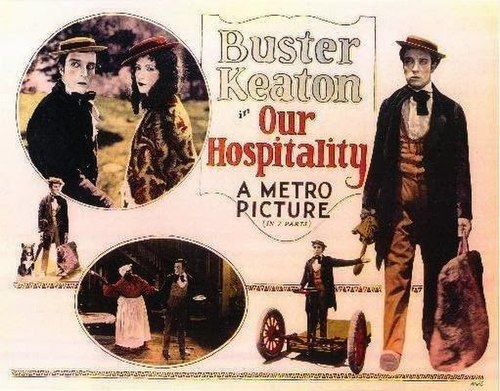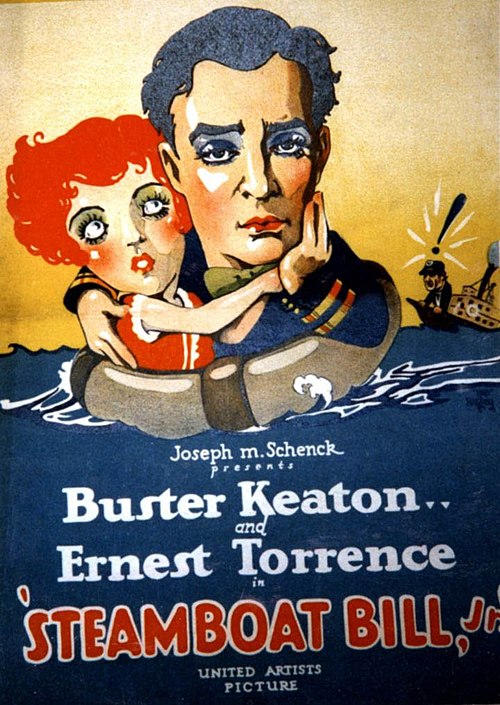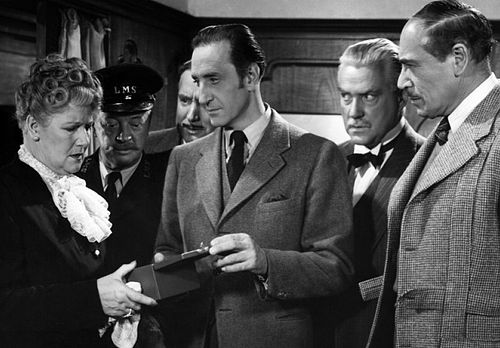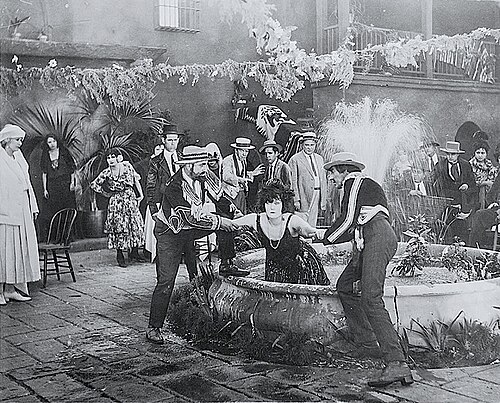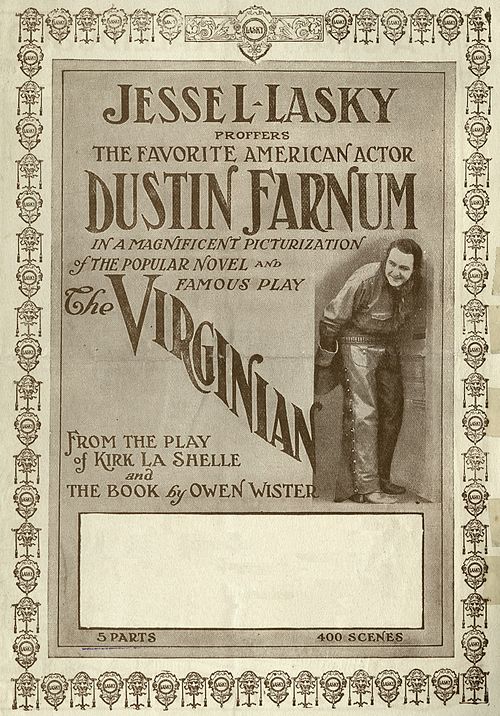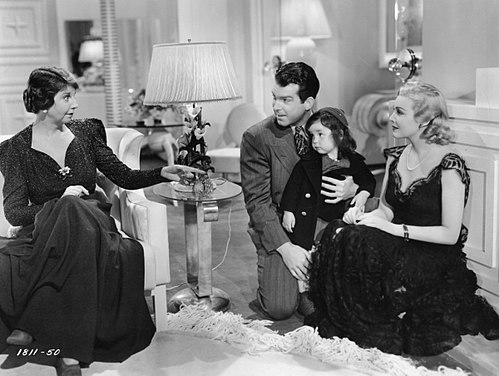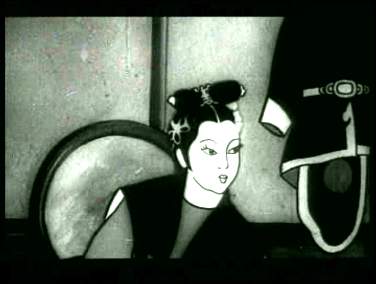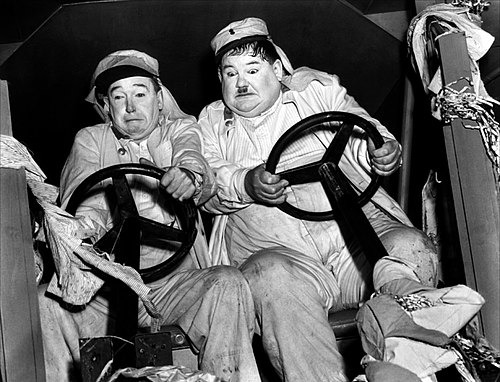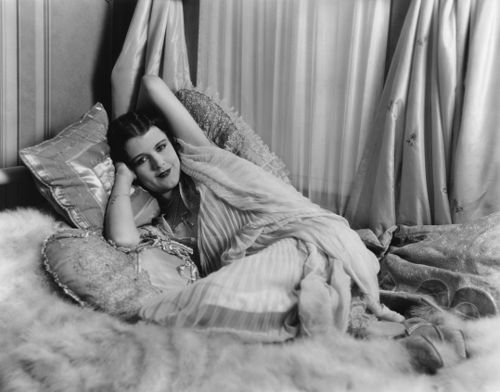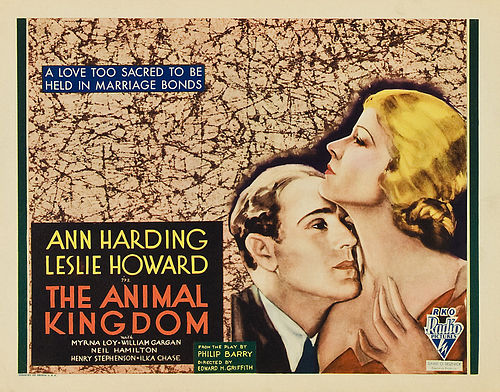Book reading s,TV series transcript s,comedy, personal, Red circle podcast, Book Review s,Interviews, its popcorn for the brain. Blog copyright Mark Antony Raines
Thursday, 12 June 2025
Tuesday, 10 June 2025
Saturday, 7 June 2025
Ghostman Radio Station-Woody Woodpecker in Pantry Panic 1941
Woody Woodpecker in Pantry Panic
Weatherby Groundhog predicts a cold winter and advises all the birds to fly south. But Woody Woodpecker decides to stay, and nearly starves. Animation by Alex Lovy and Lester Kline, story by Ben Hardaway and L.E. Elliott, music by Darrell Calker.
Ghostman Radio Station -Popeye for President
Popeye for President
Popeye and Bluto are both running for president. They are tied with exactly the same number of votes, but Miss Olive Oyl has yet to cast her ballot. Which candidate will be able to impress her the most and earn her precious vote?
Ghostman Radio Station -Reefer Madness 1936
This website uses cookies to ensure you get the best experience on our website More info
You are here
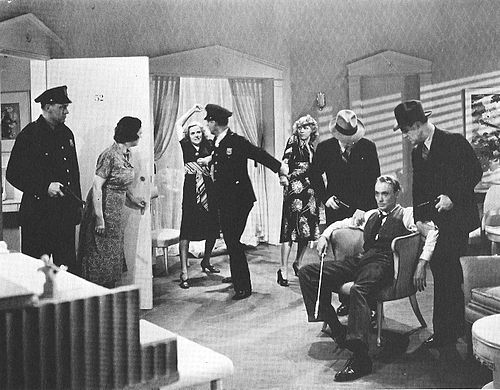
Other Versions of this Movie
Reefer Madness
Considered THE archetypal sensationalized anti-drug movie, but it's really an exploitation film made to capitalize on the hot taboo subject of marijuana use. Like many exploitation films of the time, "Reefer Madness" tried to make a quick buck off of a forbidden subject while skirting the Motion Picture Production Code of 1930. The Code forbade the portrayal of immoral acts like drug use. (The illegal drug traffic must not be portrayed in such a way as to stimulate curiosity concerning the use of, or traffic in, such drugs; nor shall scenes be approved which show the use of illegal drugs, or their effects, in detail.) The film toured around the country for many years - often being re-edited and re-titled ("Tell Your Children", "Dope Addict", "Doped Youth", "Love Madness", "The Burning Question"). It was re-discovered in the early 1970s by NORML (National Organization for the Reform of Marijuana Laws) and screened again as an example of the government's demonization of marijuana. NORML may have been confused about the film's sponsorship since one of the film's distributors, Dwain Esper, testified to the Arizona Supreme Court that "Reefer Madness" was not a trashy exploitation film but was actually sponsored by the U.S. Government - a convincing lie, but a lie nonetheless. That being said, the film is still quick enjoyable since it dramatizes the "violent narcotic's ... soul destroying" effects on unwary teens, and their hedonistic exploits enroute to the bottom. You can find more information regarding this film on its IMDb page. Also, if you are interested in the rich, uniquely American history of exploitation films, there are two excellent books on the subject: "Forbidden Fruit - The Golden Age of the Exploitation Film", Felicia Feaster and Bret Wood, Midnight Marquee Press, 1999. "Bold! Daring! Shocking! True! A History of Exploitation Films, 1919 - 1959" Eric Schaefer, Duke University Press, 1999.
</>< name=tcmopi></> or 1939< name=mathijs></>< name=senn></>
| runtime = 68 min. <!-- US duration: 1:08:17 -->
| country = United States
| language = English
| budget = $100,000
}}
File:Reefer Madness.webm
Reefer Madness (originally made as Tell Your Children and sometimes titled as The Burning Question, Dope Addict, Doped Youth and Love Madness) is a 1936–1939 American propaganda exploitation film revolving around the melodramatic events that ensue when high school students are lured by pushers to try cannabis (drug)—from a Hit and run (vehicular), to manslaughter, suicide, attempted rape, and descent into insanity due to marijuana addiction. The film was directed by Louis J. Gasnier and starred a cast composed of mostly unknown bit actors.
Originally financed by a church group under the title Tell Your Children, the film was intended to be shown to parents as a morality tale attempting to teach them about the dangers of cannabis use.< name="History"/> However, soon after the film was shot, it was purchased by producer Dwain Esper, who re-cut the film for distribution on the exploitation film circuit beginning in 1938/39 through the 40s and 50s.< name="History"/>
The film was "rediscovered" in the early 1970s and gained new life as satire among advocates of Decriminalization of non-medical cannabis in the United States.< name="History"/>< name="Peary"></> Although finding a popular audience as a cult film, critics have panned it as List of films considered the worst. Today, it is in the public domain in the United States.
Plot
Mae Coleman (Thelma White) and Jack Perry (Carleton Young)—a couple living in sin, sell marijuana. Mae pers to sell marijuana to customers her own age, whereas Jack sells the plant to young teenagers. Ralph Wiley (Dave O'Brien (actor)), a psychotic ex-college student turned fellow dealer (and addict, according to the film), and Blanche (Lillian Miles) help Jack sell cannabis to young students. Young students Bill Harper (Kenneth Craig) and Jimmy Lane (Warren McCollum) are invited to Mae and Jack's apartment by Blanche and Ralph. Jimmy takes Bill to the party. There, Jack runs out of reefer. Jimmy, who has a car, drives him to pick up some more. Arriving at Jack's boss' "headquarters," he gets out and Jimmy asks him for a cigarette. Jack gives him a joint (cannabis). Later, when Jack comes back down and gets into the car, Jimmy drives off dangerously, along the way running over a pedestrian with his car. A few days later, Jack tells Jimmy that the pedestrian died of his injuries. Jack agrees to keep Jimmy's name out of the case, providing he agrees to "forget he was ever in Mae's apartment". Jimmy does indeed escape the consequences of his crime—a rare occurrence in the film.Bill begins an affair with Blanche. Mary (Dorothy Short), Jimmy's sister and Bill's girlfriend, goes to Mae's apartment looking for Jimmy, and accepts a joint from Ralph, thinking it to be a normal cigarette. When she uses Ralph's advances, he tries to rape her. Bill comes out of the bedroom after having sex with Blanche, and hallucinates that Mary strips for Ralph. He attacks Ralph, and as the two are fighting, Jack tries to break it up by hitting Bill with the butt of his gun. The gun goes off and Mary is killed. Jack puts the gun in the hand of an unconscious Bill, and wakes him up. Bill sees the gun in his hand, and is led to believe that he has killed Mary. The group of dealers lies low for a while in Blanche's apartment while Bill's trial takes place. Ralph, losing his sanity, wants to tell the police who is actually responsible for the death of Mary. The film attributes Ralph's insanity to marijuana use.
File:ReeferMadness 14.jpg
Seeking advice from his boss, Jack is told to shoot Ralph so he keeps his mouth shut. Meanwhile, at the apartment, Blanche offers to play some piano music for Ralph to keep his mind off things. They are both very high, and Ralph tells her to play faster. She increases her playing speed to a downright cartoon-like speed in one of the film's most famous and over-the-top sequences. Jack shows up and Ralph immediately senses that Jack wants to kill him, so he kills Jack by beating him to death. The police arrest Ralph, Mae, and Blanche. Mae talks, and the criminal gang is rounded up. Blanche explains that Bill was innocent, and he is released. Blanche is then held as a material witness for the case against Ralph, but rather than testify against him, Blanche jumps out a window and falls to her death. Ralph is put in an asylum for the criminally insane "for the rest of his natural life." Mae's ultimate fate is unspecified.
The film's story is told in Inclusio sequences at a lecture given at a Parent-Teacher Association meeting by high school Principal (school), Dr. Alfred Carroll. At the end of the film, he tells the parents he has been talking to that events similar to those he has described are likely to happen again, and then points to random parents in the audience and warns that "the next tragedy may be that of your daughter ... or your son ... or yours, or yours ..." before pointing straight at the camera and saying emphatically "... or YOURS!" as the words "TELL YOUR CHILDREN" appear on the screen.
Cast
- Dorothy Short as Mary Lane
- Kenneth Craig as Bill Harper
- Lillian Miles as Blanche
- Dave O'Brien (actor) as Ralph Wiley
- Thelma White as Mae Coleman
- Carleton Young as Jack Perry
- Warren McCollum as Jimmy Lane
- Pat Royale as Agnes
- Josef Forte as Dr. Alfred Carroll
- James Ard as Officer Chuckman
- Harry Harvey (actor) Jr. as Junior Harper
History
File:ReeferMadness 13.jpgIn 1936 or 1938,< name=howell></> Tell Your Children was financed and made by a church group and intended to be shown to parents as a morality tale attempting to teach them about the dangers of cannabis use.< name="History"></>< name="Peary"/>< name="Commentary"></> It was originally produced by George Hirliman;<></> however sometime after the film was made, it was purchased by notorious exploitation filmmaker Dwain Esper, who inserted salacious shots.< name="History"/> In 1938< name=pdreview/>< name=tcmopi/> or 1939,< name=mathijs/>< name=senn/> Esper began distributing it on the exploitation circuit< name="History"/> where it was originally released in at least four territories, each with their own title for the film:< name=peter/> the first territory to screen it was the south, where it went by Tell Your Children (1938 or 1939< name=povrow/>). West of Denver, Colorado, the film was generally known as Doped Youth (1940< name=povrow/>). In New England, it was known as Reefer Madness (1940< name=povrow></> or 1947< name=howell/>), while in the Pennsylvania/West Virginia territory it was called The Burning Question (1940< name=peter></></>< name=anderson/> As part of a fundraising campaign, NORML showed Reefer Madness on college campuses up and down California, asking a dollar donation for admission and raising $16,000 towards support for the California Marijuana Initiative, a political group that sought to legalize marijuana in the fall '72 elections.< name=anderson></> Robert Shaye of New Line Cinema eventually heard about the cult hit and went to see it at Bleecker Street Cinema.< name=shaye/> He noticed the film carried an improper copyright notice and realized it was in the public domain.< name=shaye></> Seeking material for New Line's college circuit, he was able to obtain an original copy from a collector and began distributing the film nationally "making a small fortune for New Line".</>
The film was spoofed in Reefer Madness (musical), which was later made into a Reefer Madness (2005 film) in 2005, which featured actors such as Alan Cumming, Kristen Bell, Christian Campbell, and Ana Gasteyer.
Reception
The Los Angeles Times has claimed that Reefer Madness was the first film that a generation embraced as "the worst".<></> Leonard Maltin has called it "the grand-daddy of all "Worst" movies".< name="Maltin01211"></> Las Vegas CityLife named it the "worst ever" runner-up to Plan 9 from Outer Space,<></> and AMC (TV channel) described it as "one of the worst movies ever made".<></>Derivatives
File:Reefer (color) 01.JPGThe movie has inspired a number of parodies, including an off-Broadway musical satire called Reefer Madness (musical) and a 2005 film of the musical called Reefer Madness: The Movie Musical.
In 2004, 20th Century Fox, in collaboration with Legend Films, released a film colorization version of the film on DVD.<></> The original release date was April 20, 2004, a erence to the drug slang term "420 (cannabis culture)". Also during the film, the number "4" and then "20" is flashed very quickly (as a joke on subliminal messages), which is an effect added by Legend Films. The color version features intentionally unrealistic color schemes that add to the film's unintentionally camp (style) humor. The smoke from the "marihuana" was made to appear green, blue, orange, and purple, each person's colored smoke representing their mood and the different "levels of 'addiction'"..</> A DivX file of the colorized version with the commentary embedded is available as part of Nelson's RiffTrax service.<>.</> In 2009, a newly recorded commentary by Nelson, Kevin Murphy (actor) and Bill Corbett, called the "Three Riffer Edition", was released by RiffTrax,<></> and was the feature of a Rifftrax live event on August 19, 2010.
See also
- Hemp for Victory
- List of films in the public domain
- Perversion for Profit
Category:1936 films
Category:1930s drama films
Category:American drama films
Category:American social guidance and drug education films
Category:Black-and-white films
Category:English-language films
Category:Films about cannabis
Category:Films directed by Louis J. Gasnier
Category:Exploitation films
Category:Independent films
Category:New Line Cinema films
Ghostman Radio Station -His Girl Friday 1940
This website uses cookies to ensure you get the best experience on our website More info
You are here

Other Versions of this Movie
His Girl Friday
Hilarious romantic comedy starring Cary Grant and Rosalind Russell. Russell is rough and tumble reporter looking to get out of the news racket by marrying and becoming a house wife after her divorce from newspaper publisher Grant. Just when she is about to leave town with her husband-to-be the still lovesick Grant drafts her to cover one final breaking news sensation. Along with plenty of laughs and fast paced dialog this film provides a witty and cynical look at news business. There is a slight audio sync problem in the first couple minutes of the film. It is present on the source medium and is very brief.
His Girl Friday</> the 1928 play it is based on remains under copyright until 2024.<></>
Plot
File:HisgirlFriday.jpg and Rosalind Russell.}}}Walter Burns (Cary Grant) is a hard-boiled editor for The Morning Post who learns his ex-wife and former star reporter, Hildegard "Hildy" Johnson (Rosalind Russell), is about to marry bland insurance man Bruce Baldwin (Ralph Bellamy) and settle down to a quiet life as a wife and mother in Albany, New York. Walter determines to sabotage these plans, enticing the reluctant Hildy to cover one last story, the upcoming execution of convicted murderer Earl Williams (John Qualen).
Walter does everything he can to keep Hildy from leaving, including setting Bruce up so he gets arrested over and over again on trumped-up charges. He even kidnaps Hildy's stern mother-in-law-to-be (Alma Kruger). When Williams escapes from the bumbling sheriff (Gene Lockhart) and practically falls into Hildy's lap, the lure of a big Scoop (term) proves too much for her. She is so consumed with writing the story that she hardly notices as Bruce realizes his cause is hopeless and returns to Albany.
The crooked mayor (Clarence Kolb) and sheriff need the publicity from the execution to keep their jobs in an upcoming election, so when a messenger (Billy Gilbert) brings them a reprieve from the governor, they try to bribe the man to go away and return later, when it will be too late. Walter and Hildy find out just in time to save Walter from being arrested for kidnapping.
Afterward, Walter offers to remarry Hildy, promising to take her on the honeymoon they never had in Niagara Falls, but then Walter learns that there is a newsworthy strike in Albany, which is on the way to Niagara Falls by train.
Cast
File:His Girl Friday still 2.jpg- Cary Grant as Walter Burns
- Rosalind Russell as Hildegard "Hildy" Johnson
- Ralph Bellamy as Bruce Baldwin
- Alma Kruger as Mrs. Baldwin, Bruce's mother
- Gene Lockhart as Sheriff Peter B. Hartwell
- Clarence Kolb as Mayor Fred
- Abner Biberman as Louis "Diamond Louie" Palutso
- John Qualen as Earl Williams
- Helen Mack as Mollie Malloy
- Porter Hall as Reporter Murphy
- Ernest Truex as Reporter Roy V. Bensinger
- Cliff Edwards as Reporter Endicott
- Roscoe Karns as Reporter McCue
- Frank Jenks as Reporter Wilson
- Regis Toomey as Reporter Sanders
- Frank Orth as Duffy, Walter's copy editor
- Billy Gilbert as Joe Pettibone
- Arthur Pat West as Warden Cooley
- Edwin Maxwell as Dr. Max J. Eggelhoffer
Production
His Girl Friday was originally supposed to be a straightforward adaptation of The Front Page, with both the editor and reporter being men. But during auditions, a woman, Howard Hawks's secretary, read reporter Hildy Johnson's lines. Hawks liked the way the dialogue sounded coming from a woman, resulting in the script being rewritten to make Hildy female and the ex-wife of editor Walter Burns.< name=osborne />< name=tcmnotes />< name=tcmarticle></> Most of the original dialogue and all of the characters' names were left the same, with the exception of Hildy's fiancé, Bruce Baldwin.Hawks had a very difficult time casting this film. While the choice of Cary Grant was almost instantaneous, the casting of Hildy was a more extended process. At first, Hawks wanted Carole Lombard, whom he had directed in the screwball comedy Twentieth Century (film), but the cost of hiring Lombard in her new status as a freelancer proved to be far too expensive, and Columbia could not afford her. Katharine Hepburn, Claudette Colbert, Margaret Sullavan, Ginger Rogers and Irene Dunne were offered the role, but turned it down, Dunne because she felt the part was too small and needed to be expanded. Jean Arthur was offered the part, and was suspended by the studio when she used to take it. Joan Crawford was reportedly also considered.
Hawks then turned to Rosalind Russell. During filming, Russell noticed that Hawks treated her like an also-ran, so she confronted him: "You don't want me, do you? Well, you're stuck with me, so you might as well make the most of it."< name=osborne>Robert Osborne, Turner Classic Movie broadcast</>
The film had the working title of The Bigger They Are, Russell wrote that she thought her role did not have as many good lines as Grant's, so she hired her own writer to "punch up" her dialogue. With Hawks encouraging ad-libbing on the set, Russell was able to slip her writer's work into the movie. Only Grant was wise to this tactic and greeted her each morning saying, "What have you got today?"
The film is noted for its rapid-fire repartee, using overlapping dialogue to make conversations sound more realistic, with one character speaking before another finishes. Although overlapping dialog is specified and cued in the 1928 play script by Hecht and MacArthur,</>
His Girl Friday was 19th on American Film Institute's list of AFI's 100 Years...100 Laughs, released in 2000.<></>
Adaptations
His Girl Friday was dramatized as a radio play on the September 30, 1940 broadcast of Lux Radio Theater with Claudette Colbert, Fred MacMurray and Jack Carson. It was dramatized again on The Screen Guild Theater (March 30, 1941) with Grant and Russell reprising their film roles.
His Girl Friday and the original Hecht and MacArthur play were later adapted into another stage play, His Girl Friday, by playwright John Guare. This was presented at the Royal National Theatre, London, from May to November 2003, with Alex Jennings as Burns and Zoë Wanamaker as Hildy.
The 1988 film Switching Channels was loosely based on His Girl Friday, with Burt Reynolds in the Walter Burns role, Kathleen Turner in the Hildy Johnson role, and Christopher Reeve in the role of Bruce.
Notes
Category:1940 films
Category:American comedy-drama films
Category:American screwball comedy films
Category:Black-and-white films
Category:Columbia Pictures films
Category:Comedy of remarriage films
Category:Films about capital punishment
Category:Films about journalists
Category:Films based on plays
Category:Films directed by Howard Hawks
Category:United States National Film Registry films
-
Skip to content CLOSE SEARCH Search for: SOCIAL PROFILES Facebook Twitter Pinterest MENU Cambridge ...
-
https://dailycaller.com/2022/05/02/loch-ness-monster-viral-video-real-fake-skepticism/


